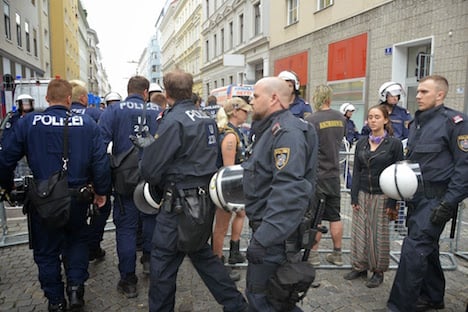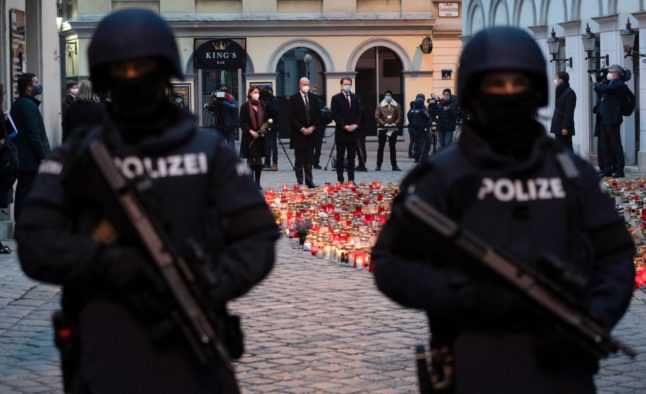According to a report from the Associated Press news agency, police in Vienna announced on Saturday that a tip received just before Christmas warned that several known potential attackers were planning a provocation using explosives or firearms.
A similar warning has been passed on to other major European capitals, but so far there are no concrete details, only suspicions.
For maximum impact, the attackers are likely to target events around the New Year, which is traditionally a time when large crowds of people gather in public events.
Police spokesman Christoph Pözel told the APA that he was aware of no specific threat, either as to place or time.
Police sources say they will be increasing surveillance of large crowds and transportation hubs in the time leading up to January 1st. There are no plans at this time to cancel any of the planned events, however.
Crush
As usual, Vienna's central Stefansplatz square is expected to be massively overcrowded, with the U1 Stefansplatz station bypassed in the hours before and after the New Year event.
Revelers are advised to avoid the city centre if they suffer from claustrophobia.
Visitors wanting to attend must stop at an adjacent station, either on the U1 or U3 lines, and walk into the central city. The lockdown will commence around 22:00.
The Stefansplatz station itself will be restricted to use by emergency services only, including the Vienna Ambulance Service.
The No. 1 tram will run a limited service, only between Stefan-Fadinger Square – Dr.-Karl-Renner-Ring – Joefstädter Street and Prater Hauptallee – Stock Exchange – Nußdorferstraße.
The 71 trains will run only between Fickeystraße and Schwarzenbergplatz.
The Vienna Ring Tram will suspend service at 19:30.
The lines 30, 1A, 2A and 3A will not be in operation.



 Please whitelist us to continue reading.
Please whitelist us to continue reading.